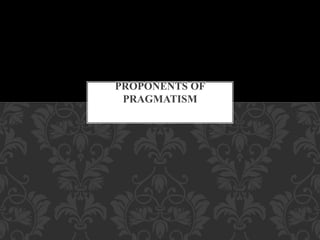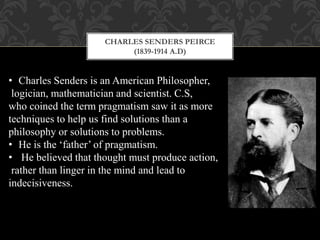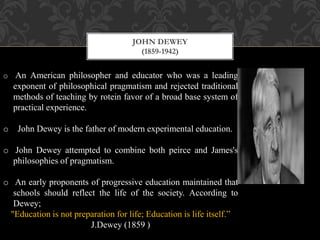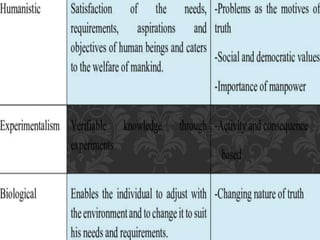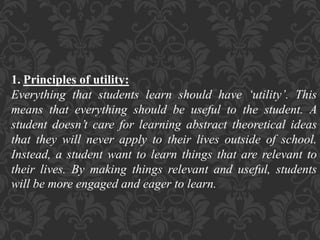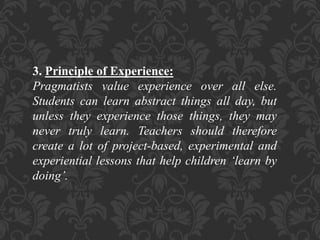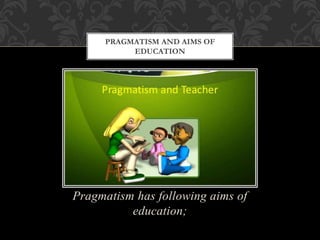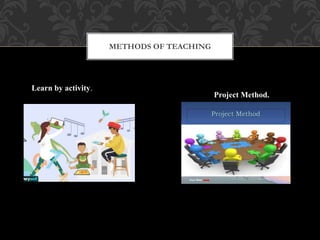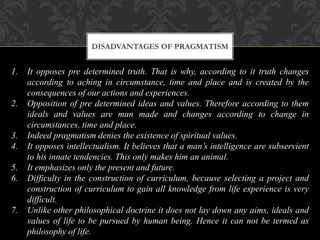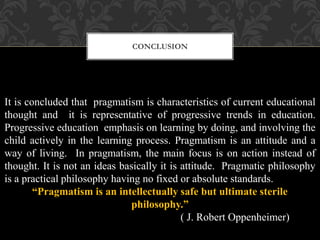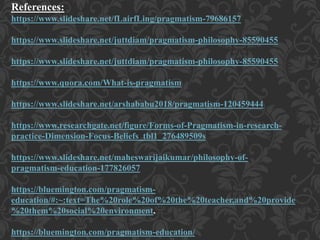Pragmatism is a philosophy originating in the United States in the late 19th century that believes ideas and theories should be judged based on their practical consequences and real-world applications rather than on abstract principles. Key proponents included Charles Sanders Peirce, William James, and John Dewey. Pragmatism emphasizes practical application over theory, believing that what works in practice is more important than absolute truth. In education, pragmatism focuses on learning by doing through experience and projects rather than rote memorization, with the teacher acting as a guide or facilitator rather than an authority.





